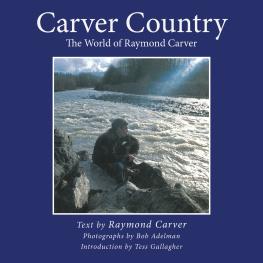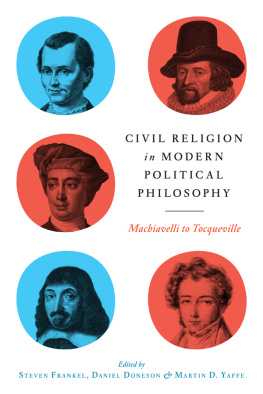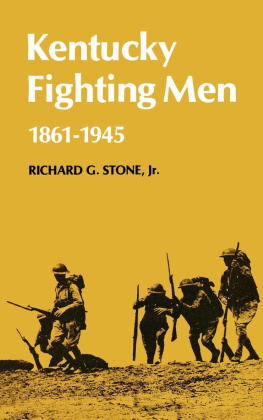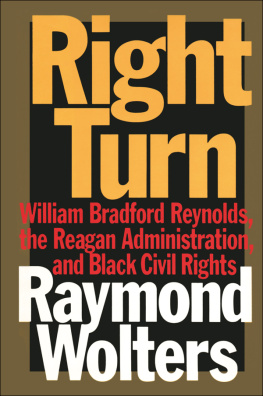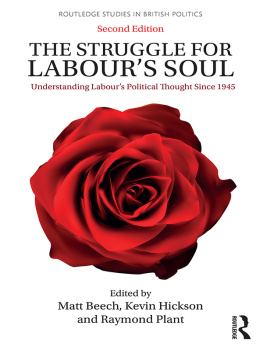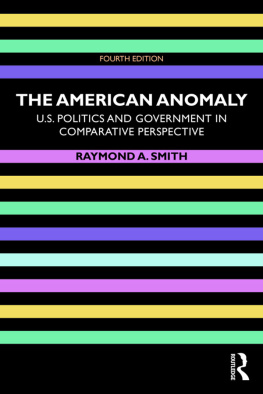Haberski Raymond Jr. - God and War American Civil Religion since 1945
Here you can read online Haberski Raymond Jr. - God and War American Civil Religion since 1945 full text of the book (entire story) in english for free. Download pdf and epub, get meaning, cover and reviews about this ebook. year: 2012, genre: Politics. Description of the work, (preface) as well as reviews are available. Best literature library LitArk.com created for fans of good reading and offers a wide selection of genres:
Romance novel
Science fiction
Adventure
Detective
Science
History
Home and family
Prose
Art
Politics
Computer
Non-fiction
Religion
Business
Children
Humor
Choose a favorite category and find really read worthwhile books. Enjoy immersion in the world of imagination, feel the emotions of the characters or learn something new for yourself, make an fascinating discovery.

- Book:God and War American Civil Religion since 1945
- Author:
- Genre:
- Year:2012
- Rating:3 / 5
- Favourites:Add to favourites
- Your mark:
- 60
- 1
- 2
- 3
- 4
- 5
God and War American Civil Religion since 1945: summary, description and annotation
We offer to read an annotation, description, summary or preface (depends on what the author of the book "God and War American Civil Religion since 1945" wrote himself). If you haven't found the necessary information about the book — write in the comments, we will try to find it.
God and War American Civil Religion since 1945 — read online for free the complete book (whole text) full work
Below is the text of the book, divided by pages. System saving the place of the last page read, allows you to conveniently read the book "God and War American Civil Religion since 1945" online for free, without having to search again every time where you left off. Put a bookmark, and you can go to the page where you finished reading at any time.
Font size:
Interval:
Bookmark:

God and War
God and War
A m e r i c a n C i v i l
R e l i g i o n s i n c e 1 9 4 5
R a y m o n d H a b e r s k i J r .
R u t g e r s U n i v e r s i t y P r e s s New Brunswick, New Jersey, and London
Library of Congress Cataloging-in-Publication Data Haberski, Raymond J., 1968
God and war : American civil religion since 1945 / Raymond Haberski, Jr.
p. cm.
Includes bibliographical references (p. 000) and index.
ISBN 9780813552958 (hardcover : alk. paper) ISBN
9780813553184 (e-book)
1. Civil religionUnited States.
2. United StatesReligion1945
3. United StatesHistory, MilitaryReligious aspects.
I. Title.
BL2525.H33
2012
201.72730973dc23
2011037601
A British Cataloging-in-Publication record for this book is available from the British Library.
Copyright 2012 by Raymond Haberski Jr.
All rights reserved
No part of this book may be reproduced or utilized in any form or by any means, electronic or mechanical, or by any information storage and retrieval system, without written permission from the publisher. Please contact Rutgers University Press, 100 Joyce Kilmer Avenue, Piscataway, NJ 088548099. The only exception to this prohibition is fair use as defined by U.S. copyright law.
Visit our website: http://rutgerspress.rutgers.edu Manufactured in the United States of America
Dedicated to my mentors:Charles C. Alexander, Kevin M. Shanley, Vincent P. Fox,and my dad
C o n t e n t s
Acknowledgments
ix
Lincolns Bequest
Civil Religion Incorporated
Civil Religion Redeemed
Civil Religion Reborn
Civil Religion at Bay
Civil Religion Forsaken
Reckoning with American Civil Religion 243
Notes
Index
vii
A c k n o w l e d g m e n t s I thank first and foremost George Cotkin for giving me an opportunity to shift my intellectual focus and to delve into an area that is rich and fulfilling beyond what I expected. I am indebted to George for his stewardship, confidence, and, most of all, his kindness. He stands as an exemplar to those of us who work with him in the vibrant field of United States intellectual history.
Once again I have been fortunate to have comrades in ideas to call on for a frank hearing of my work, usually over good beer. Among those I am indebted to are Dave Steigerwald, Marc Selverstone, Jeff Woods, Marc OReilly, Steve Remy, Jeff Coker, and especially Colin Nugent for helping me make a significant investment in Caf Bartof. I am forever grateful to the American and Danish Fulbright committees for bringing my family and me to Denmark for the 20082009 academic year; that grant gave me the opportunity to research and teach this project. In Copenhagen, I have a group of colleagues who have become dear friends; my sincere thanks to Niels Bjerre-Poulsen, Eddie Ashbee, Carl Pedersen, and Martyn Bone. Thanks also to Merete Borch and Jan Gustafsson at the Copenhagen Business School and Marie Mnsted of the Danish-American Foundation for their help and kindness.
My thanks also to Gina Gustavsson and Mike Wolf, both of whom I met at the European Consortium for Political Research conference in Lisbon and who have since become my good friends.
I also thank the faculty and students at the Catholic University of Eichsttt-Ingolstad in Germany, the University of Graz in Austria, Southern Denmark University in Odenese, and the University of Copenhagen for being fine hosts and giving me opportunities to present the ideas addressed in this work.
At Marian University, where I have worked for the past eleven years, I thank my colleagues, who have helped me in numerous ways, especially Mary Ellen Lennon and the members of BOB and WAG.
ix
x
Acknowledgments
I also thank the provost, Tom Enneking, and the president, Daniel Elsener, for supporting my work over the years.
My colleagues who created the Society for United States Intellectual History have been more important to my intellectual development than they can know. Through our blog, the annual conference, and now the society itself, I have had the privilege to get to know a remarkable group of scholars, among them Andrew Hartman, David Sehat, Ben Alpers, Tim Lacy, and Mike OConnor.
My family and friends have provided encouragement and love that would be impossible to capture in a brief statement. My heartfelt thanks to my parents, my sisters and their families, and the many relatives who have given so much that is good to their children.
My wife and daughter are the greatest gifts in my life. They remind me of the happiness that exists beyond the satisfaction of completing a project such as this.
And, finally, my appreciation to the mentors who continue to play fundamental roles in my life: Charlie Alexander taught me how to be a historian; Kevin Shanley made me want to be a teacher; Vincent Fox challenged me to be a Catholic; and my dad showed me how to be a father. I thank them all.
God and War
C h a p t e r 1
Lincolns Bequest
On veterans day 2009, just prior to his first major address on the war in Afghanistan, President Barack Obama walked through Arlington National Cemetery. James Meeks, a reporter for the New York Daily News, happened to be visiting Arlington that day as well.
He recounted how the President and the First Lady made an unan-nounced stop in section sixty, a place where many American soldiers from the wars in Iraq and Afghanistan are buried. They stopped first at the grave of Medal of Honor recipient Ross McGinnis, [the] Army private who threw himself on a grenade in Iraq three years ago to save four buddies. The Obamas then met and consoled a few other people who were in section sixty, including Meeks, who shook Obamas hand and told him of a friend who had been killed a year earlier in Iraq. The presidents visit was captured in a few photographs, one of which showed a solemn Obama striding amid headstones looking resolute and contrite.1
Two weeks later, in a speech on the evening of December 1, 2009, Obama addressed the moral rationale for the war in Afghanistan, offering his justification for the sacrifices already made by American soldiers and providing inspiration for sacrifices yet to come. The president described the war as a time of great trial and reminded his audience that when it began, we were unitedbound together by the fresh memory of a horrific attack and by the determination to defend our homeland and the values we hold dear. Obama emphasized the unity that existed in the aftermath of 9/11, adding that the war in Afghanistan was about values as much as strategy. The strength of our values... [is] the source, the moral source, of Americas authority, he declared. Obama grew increasingly passionate as he spoke about American ideals, clearly acknowledging the widespread skepticism and even cynicism engen-dered by the war in Iraq as well as by the ten-year-long engagement 1
G o d a n d W a r
in Afghanistan. In the hope of rebuilding unity for his moment, the president called on ideas rooted in the past. I refuse to accept the notion that we cannot summon that unity again, he declared. I believe with every fiber of my being that weas Americanscan still come together behind a common purpose. For our values are not simply words written into parchmentthey are a creed that calls us together and that has carried us through the darkest of storms as one nation, as one people.2
Every president has made similar appeals to a common purpose
an American creed. Yet in a time of war the imperative to define that creed and marshal that common purpose grows exponentially. After all, Obama chose to make his address at West Point to an audience that included soldiers who might give the last full measure of devotion to their nation. And by identifying the ideals for which the nation went to war, Obama tried to justify the sacrifices that would be made by those in the war. As sociologists Carolyn Marvin and David Ingle astutely observed, What is really true in any community is what its members can agree is worth killing for, or what they can be compelled to sacrifice their lives for. The sacred is thus easily recognized.3
Next pageFont size:
Interval:
Bookmark:
Similar books «God and War American Civil Religion since 1945»
Look at similar books to God and War American Civil Religion since 1945. We have selected literature similar in name and meaning in the hope of providing readers with more options to find new, interesting, not yet read works.
Discussion, reviews of the book God and War American Civil Religion since 1945 and just readers' own opinions. Leave your comments, write what you think about the work, its meaning or the main characters. Specify what exactly you liked and what you didn't like, and why you think so.

